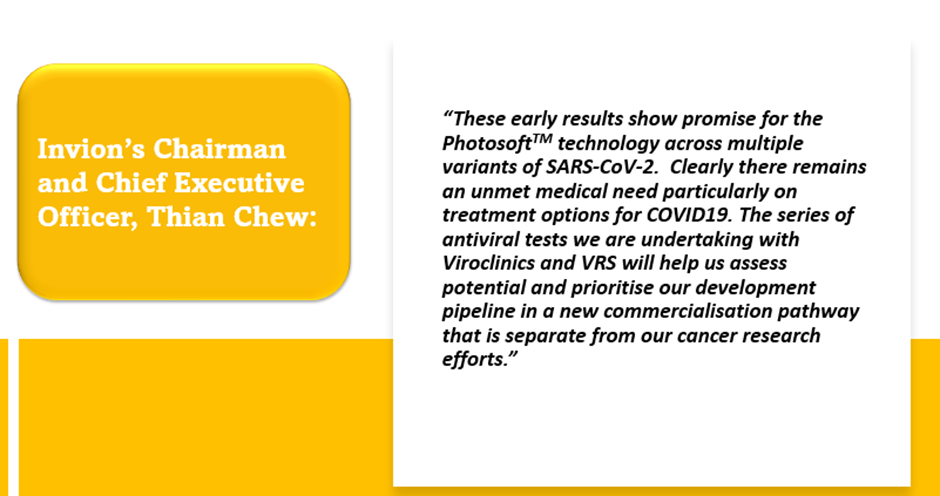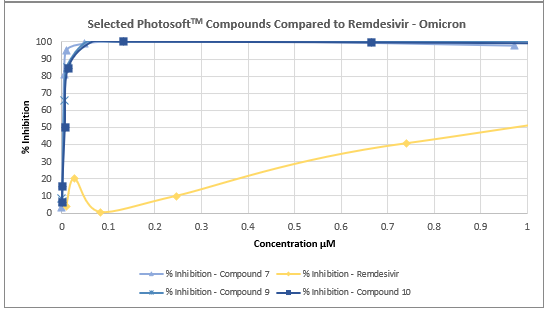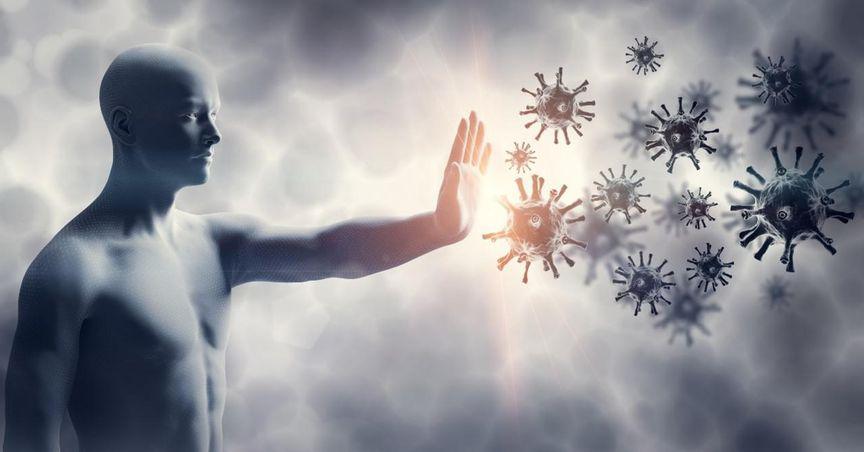Highlights
- Invion reports that the results of its latest study indicate promise for the PhotosoftTM technology across COVID-19 variants.
- In the study, 9 of the 10 PhotosoftTM compounds tested displayed antiviral activity against both Delta and Omicron variants.
- The PhotosoftTM compounds required lower levels of concentration than remdesivir to work, and a majority of these compounds had higher therapeutic indexes than remdesivir.
- A market study projects the global market for coronavirus treatment to grow to >US$49bn by 2027 (17.5% compound annual growth rate), as per Invion.
Invion Limited (ASX:IVX) has provided an update regarding the effectiveness of its PhotosoftTM technology across multiple variants of SARS-CoV-2.
The company reports that a recent in vitro study of PhotosoftTM compounds on the inhibition of the Delta and Omicron BA.1 variants of SARS-CoV-2 – two major SARS-CoV-2 variants behind COVID-19 – has produced positive results.
The global coronavirus treatment market is projected to grow at a compound annual growth rate (CAGR) of 17.5% from 2020 to 2027 to reach US$49.2 billion, states Invion referring to a study by Coherent Market Insights.
To know more about the PhotosoftTM technology, read here.
COVID-19 claiming more than 6 million lives
Coronavirus disease 2019 or COVID-19 is a highly contagious disease that has had a devastating effect on the world’s demographics.
To date, the virus has claimed millions of lives, evolving as one of the major global health crises in the history of mankind. First reported in China in late December 2019, the virus spread rapidly across the world in a short span of time. The World Health Organization (WHO) declared COVID-19 a global pandemic on 30 January 2020.
As of 14 October 2022, there have been nearly 620 million cases of COVID-19, including 6.5 million deaths reported to the WHO across the globe.
COVID-19 scenario in Australia
As per an update by Prime Minister Anthony Albanese on 30 September, the Australian government ended the mandatory five-day home quarantine for COVID-infected people on 14 October 2022. This was one of the last remaining restrictions from the pandemic era. The government made the move amid warnings from doctors that it could put the public at risk.
Over the last week, 36,155 cases of COVID-19 were reported across Australia. It averages to 5,165 cases per day. The province of Australian Capital Territory reported a 25.4% surge in COVID-19 cases followed by New South Wales, which reported about a 13% increase in cases last week.
Study indicates promise for PhotosoftTM across SARS-CoV-2 variants
The in vitro study conducted by Viroclinics-DDL – the same leading contract research and clinical laboratory service company that conducted the Zika virus study released by Invion in September 2022 – and Virology Research Services Ltd (VRS) tested 10 different PhotosoftTM compounds at eight concentrations for antiviral activity against SARS-CoV-2 strains.

Data source: IVX update
© 2022 Kalkine Media®
In the study, remdesivir was used for treatment of the control group. Remdesivir is an approved medication for emergency use in COVID-19 treatment in many countries. It is a broad-spectrum antiviral medication developed by the global pharmaceutical company Gilead Sciences.
The results demonstrated that several PhotosoftTM compounds at different experimental concentrations exposed to specific light wavelengths effectively inhibited the Delta and Omicron strains of the virus. These compounds also required lower levels of concentration than remdesivir to work, and a majority of these PhotosoftTM compounds had higher therapeutic indexes than remdesivir.
To be more specific:
- 9 out of the 10 PhotosoftTM photodynamic compounds exhibited antiviral activity (>99% inhibition) against both the Delta and Omicron BA.1 variants of SARS-CoV-2. The EC50 values ranged from 2.27 nM to 771 nM.
- 5 out of the 10 PhotosoftTM compounds showed no cytotoxicity. The remaining five demonstrated light-dependent cytotoxicity with a high therapeutic index value.
- The most potent anti-Omicron BA.1 compound had a therapeutic index value of 356 and the most potent anti-Delta compound had a value of 109.


Image source: IVX update
The road ahead
Invion has stated its intention to use these results as part of its broader work on infectious diseases. The company plans to refine candidate compounds and shortlist target indications and potential clinical applications, which will involve additional in vitro and potentially in vivo testing of PhotosoftTM compounds.
IVX shares traded at AU$0.011 on 18 October 2022.



